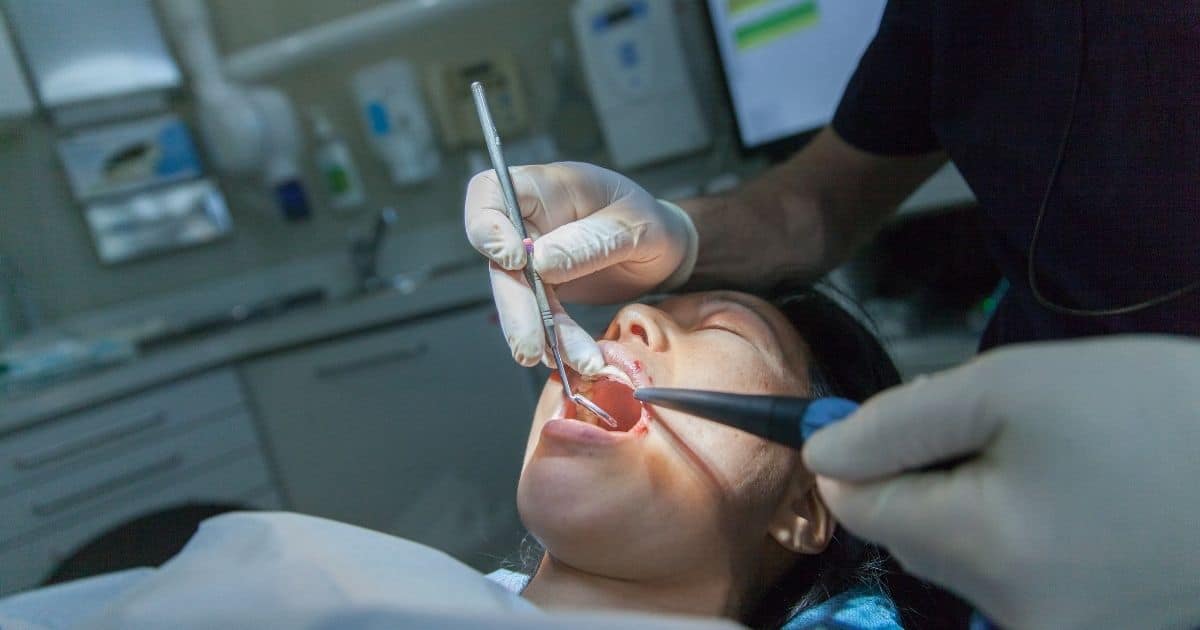Published on April 4, 2025

Swelling is a common side effect of oral surgery. Having mild swelling after undergoing tooth extraction, dental implants, or jaw surgery is normal. So, if you are considering oral surgery, understand that you will likely experience swelling in a specific area. However, the good news is that it is not permanent.
In the blog, you will get to know more about oral surgery swelling. Understand how long it can last and what you can do to heal faster.
Why Does Swelling Happen After Oral Surgery?
Swelling is a natural part of your self-healing process. When oral tissues are disturbed in surgeries, the immune system brings more blood to the tissues. The increased blood flow brings white blood cells and nutritional supplies to start the reparative process; the result is a puffy jaw or cheek.
Some very common oral surgical interventions that lead to swelling include:
- Wisdom tooth extractions
- Bone grafts placed
- Jaw or gum surgery
Swelling is, unfortunately, a part of the healing process; however, one can help manage it a bit through care and patience.
How Long Will the Swelling Last?
Swelling is not permanent, but it might feel that way for a while before you remember what easing feels like again. Below is a rough idea of what might happen:
- Day 1–2: By this point, the swelling reaches its peak. The swellings can be felt in the cheek, jaw, or under the eyes.
- Days 3–4: The swelling starts to go down. You may still feel sore, but the puffiness should slowly decrease.
- Day 7 and Beyond: Although the most visible swelling typically subsides before the 7th day, some mild internal swelling may still resolve itself over time.
One must remember that healing may vary from one person to another- different people may rebound rather fast, whereas others may need some extra days to feel fully normal.
What Can You Do To Quicken The Healing Process?
There’s no magic button to instantly eliminate swelling, but there are several proven ways to help your body heal more comfortably and quickly. Here’s what to do:
First 24–48 Hours: Cold Therapy
- The ice pack should be attached to your face during your 20-minute session and your 20-minute break. Cold therapy will constrict blood flow in the area and reduce swelling significantly, making it an effective means of relieving swelling.
- Make sure to keep your head up. Especially during rest or sleep, to allow the trapped fluid to drain from your face. Bolster your neck with additional pillows.
- Relax and avoid any prolonged activity, such as protracted bending, crashes, or heavy lifting. Your body needs to use all its energy to recover.
After 48 Hours: Switch to Warm Care
- Try to keep the tissues warm by using a warm cloth to promote circulation and accelerate the healing process.
- Carefully work on the jaw, complementing any exercise plan your surgeon provides, as this helps to lessen the tightness.
- The diet recommended for you at this time is soft formulations like smoothies, yogurt, velvety soups, and mashed veggies. Specific anti-inflammatory flavors can be added, from avocados to darker greens, of course.
General Tips During Recovery:
- Hydrate and eliminate alcohol and caffeine.
- Follow the dosing precisely on your antibiotics, anti-inflammatories, or pain relievers.
- No use of straws, no smoking, and no spitting: all of these lead to irritation and increased swelling.
- Clean your mouth, keep it moistened with gentle rinsing (mostly saltwater), and avoid brushing on the surgical area until your dentist advises you otherwise.
It may be bitter, but swelling after oral surgery is nature’s very own way of healing. Given proper intervention, most patients experience improvement in just a couple of days. The secret here is rest, compliance with instructions, and providing the body with the necessary support for a smooth recovery. Sooner than you think, you will be eating, talking, and smiling without any difficulty.
